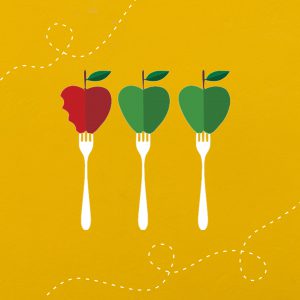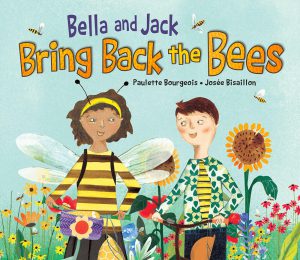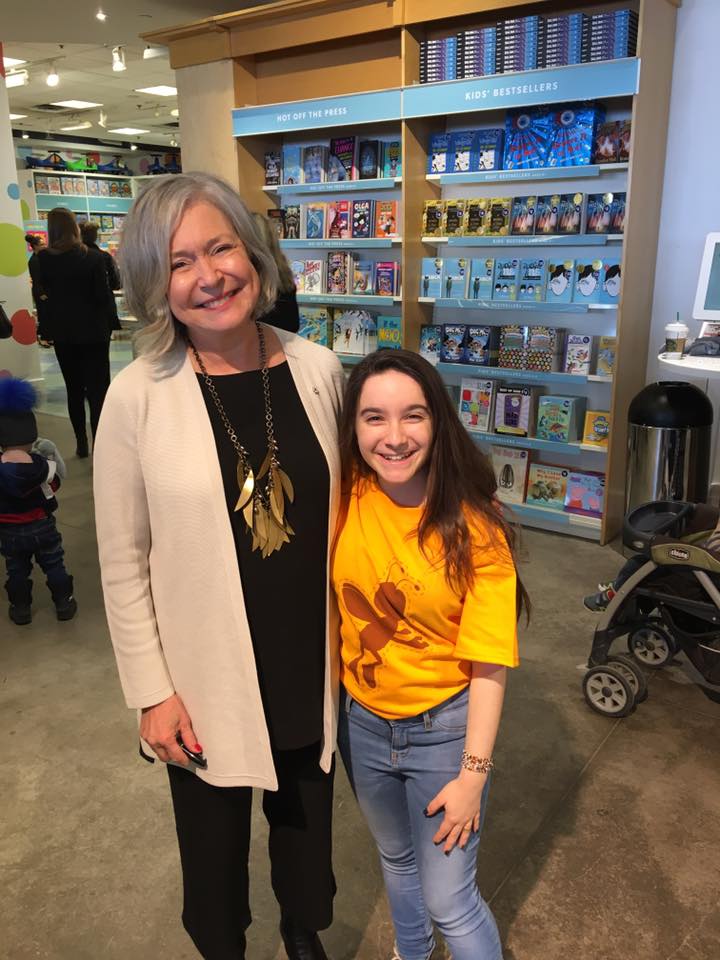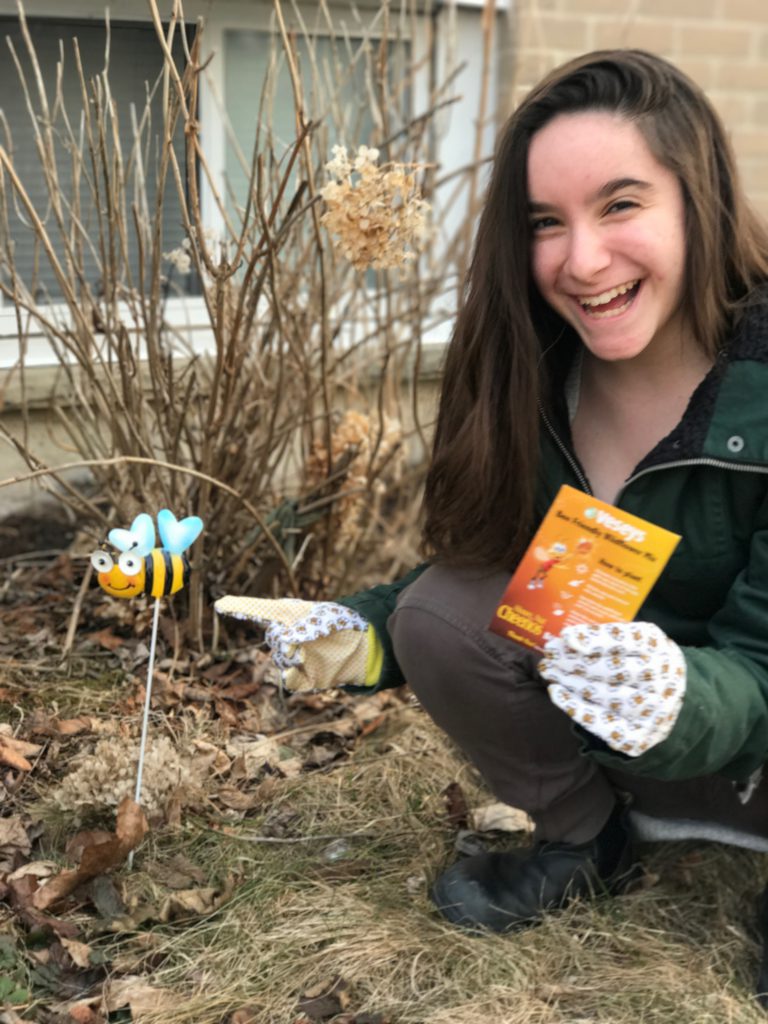One of the questions that I get asked a lot is how I learn about the different issues I’m passionate about and how I find the resources and tools to take action. My answer is that it’s never just one place and that it’s usually a combination of the internet, social media and people. The more people I meet, the more issues I discover and the more passionate I am about changing the world. Over the years I have learned that there are more issues than I could have ever imagined and that almost every issue has a collection of issues related to it.
 I’ve had the opportunity to learn about the issues facing the bee population and meet more people when I partnered with Honey Nut Cheerios for their #BringBackTheBees campaign. The fact that bees are disappearing is directly linked to larger issues: Food Security and the Environment. 1 in 3 bites of the food we eat is made possible by bees and other pollinators.Bees are essential in our lives and due to their nutrition and habitat loss, the bee population is declining fast. The solution? Educating the next generation and planting wildflower seeds. Honey Nut Cheerios is giving away 300 million wildflower seeds for FREE for all Canadians at www.bringbackthebees.ca and are such a great way for kids to make a difference.
I’ve had the opportunity to learn about the issues facing the bee population and meet more people when I partnered with Honey Nut Cheerios for their #BringBackTheBees campaign. The fact that bees are disappearing is directly linked to larger issues: Food Security and the Environment. 1 in 3 bites of the food we eat is made possible by bees and other pollinators.Bees are essential in our lives and due to their nutrition and habitat loss, the bee population is declining fast. The solution? Educating the next generation and planting wildflower seeds. Honey Nut Cheerios is giving away 300 million wildflower seeds for FREE for all Canadians at www.bringbackthebees.ca and are such a great way for kids to make a difference.
 Honey Nut Cheerios and Kids Can Press have also created a new book, Bella and Jack Bring Back the Bees, educating kids about the bee population and is available for FREE at Indigo, Chapters and Coles bookstores across Canada now. The story is about two kids who discover something is going on with the bee population and work with a farmer and beekeeper to help bring back the bees. Just ask the cashier for your free copy!
Honey Nut Cheerios and Kids Can Press have also created a new book, Bella and Jack Bring Back the Bees, educating kids about the bee population and is available for FREE at Indigo, Chapters and Coles bookstores across Canada now. The story is about two kids who discover something is going on with the bee population and work with a farmer and beekeeper to help bring back the bees. Just ask the cashier for your free copy!
I recently had the chance to talk to Paulette Bourgeois, the author of Bella and Jack Bring Back the Bees (Fun Fact: Paulette created the Franklin the Turtle series), and Marla Spivak, Professor of Entomology (that’s fancy for ‘scientific study of insects’) to talk about why the shrinking bee population is a growing concern and what we can do about it.
HANNAH: Why is it important to help bring back the bees and educate youth about the challenging facing bees and other pollinators?
MARLA: Bees are the most important pollinators of our fruits and vegetables, almonds, and other healthy foods in our diet. Young people need to be engaged in the plight of pollinators to ensure there is plentiful and nutritious food to support our growing human population in the future. Also, bees pollinate flowers, which provide beauty to our world. A diversity of bees (wild bees and managed honey bees) pollinate a diversity of flowers, and a diversity of food plants, which provide us a beautiful landscape and diverse diet. Diversity is key to sustainability and resiliency in our world!
HANNAH: That’s so interesting. Diversity is something that comes up in so many different areas for so many different issues. Before I met you, I never thought about it being so important to bees. I’ve got to be honest though, I didn’t think very much about bees at all, before I met you through our work with #BringBackTheBees. How did you come to be so interested in bees that you made it your life’s work?
MARLA: I got drawn into the honeybee world completely by a fluke. I was 18 years old and bored, and I picked up a book in the library on bees and I spent the night reading it. I had never thought about insects living in complex societies. It was like the best of science fiction come true. And even stranger, there were these people, these beekeepers, that loved their bees like they were family, and when I put down the book, I knew I had to see this for myself. So I went to work for a commercial beekeeper, a family that owned 2,000 hives of bees in New Mexico. And I was permanently hooked.
HANNAH: Something that I loved about Bella and Jack Bring Back the Bees is how passionate Bella was about the bees and that she was not only determined to help, but it was also important to her that Jack join her. She seemed to know that if she could show him how important the bees are, then he would care just as much as she did. This has been a big part of what I do too – I know that you can’t get people to care about an issue that they don’t know enough about and if they don’t know enough to care, they can’t care enough to act.

PAULETTE: For hundreds of thousands of years bees and humans have lived together, and now the bees are disappearing. We know there’s a whole bunch of reasons why they’re disappearing. I think kids need to know – they are the ones with the energy and the enthusiasm, and the wherewithal to make change, to make it happen, to rally each other for a cause. And adults respect kids who have passion and ideology.
HANNAH: I think that’s so true and that passion like that can really cause a ripple effect and we need more of that for the bees (and beyond).
PAULETTE: There are some ways that we know absolutely help, and that’s wild flowers and planting them. And it’s something that kids can be empowered to do really simply. It’s harder to establish a hive colony in your school or your backyard, but spreading wildflower seeds, especially those developed specifically to bring back bees, is something that all kids can do. And then they can learn more and see if they want to do even more after that.
HANNAH: What I really love about this solution is that it’s something that even really young kids can do. They can literally get their boots on the ground and their hands dirty and plant seeds. It won’t be long before they will see their seeds become bright and beautiful flowers in their garden ready for the bees. This, I think, is an important piece to get kids involved in making a difference – to be able to see the results. It makes it very tangible and motivating.
Something else I really believe in is role models. I feel like role models can really guide your journey as a change maker, or whatever you’re doing. Who are your role models?
PAULETTE: Oh my goodness, I have always thought that the Suzuki family has done the most amazing things. And it’s passed from generation to generation in their family.
HANNAH: I love that you said that – Severn Suzuki was one of my first role models.
PAULETTE: I can understand why, and it’s because she started with a passion when she was young, just as you did. I think environmentally again, and with animals it has to be Jane Goodall who braved all kinds of criticism and all kinds of suspicion about what she was doing out there. And yet she’s made an entire species, one that we have gotten know through her love and work. And now love and we care about them too.
Paulette’s answer about Jane Goodall (also one of my role models) really brings us full circle. When you come across someone – whether it’s someone like Marla (a passionate adult and expert on an issue) or Bella (a passionate young person learning about an issue) – listen. Listen to their knowledge and listen to their passion. Knowledge leads to passion and passion leads to action.
Just like Bella, Jack, Paulette, Marla and myself, YOU can do your part in helping to bring back the bees! And it’s so easy, order your FREE wildflower seeds to plant this spring by visiting www.bringbackthebees.ca. To learn more from Marla, check out her TED Talk, Why Bees Are Disappearing, and to introduce children in your life to the plight of the bees, why it is so important to all of us and how we can help, get your free copy of Paulette’s book, Bella and Jack Bring Back The Bees at Indigo, Chapters and Coles locations across Canada.


Hi Hannah! my name is Mackenzie and we are learning about you and everything you do at school right now. I was thinking about learning about the bees and what I can do to help. do you have any tips?
Hi Mackenzie! Something super tangible for you to do to help the bees is plant wildflower seeds. Not only is this nutrition for the bees, but its also a safe and healthy habitat for them. Cool, right? Tell your class I say hi and let me know if you need anything!